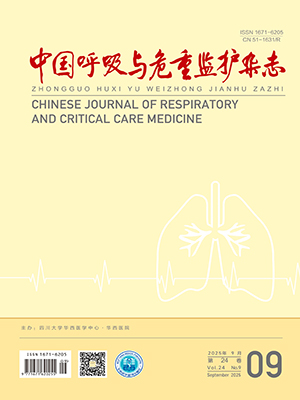Objective To investigate whether de-escalation antibacterial therapy would be helpful to antifungal treatment in patients with invasive pulmonary fungal infection( IPFI) .
Methods A prospective study was conducted in 174 IPFI patients( male 106, female 68) in the Second Hospital of Hebei Medical University from January 2008 to July 2010. The clinical data was collected including symptoms, physical signs,microbiological results, treatment and prognosis, etc. The therapeutic results were compared between the patients who received or did not receive de-escalation antibacterial therapy.
Results The predominant pathogenic fungus was Candida albicans, which accounted for 59. 7% of IPFI. The effect of antifungal therapy showed statistically significant difference between the patients who received de-escalation antibacterial therapy and the patients who did not ( 60. 0% vs. 34. 5% , P =0. 001) .
Conclusion The deescalation use of antibacterial therapy would be helpful to antifungal efficacy.
Citation: QI Tianjie,YAN Xixin,LI Shuai. Influence of De-escalation Antibacterial Therapy on Invasive Pulmonary Fungal Infection. Chinese Journal of Respiratory and Critical Care Medicine, 2011, 10(5): 429-431. doi: Copy
Copyright © the editorial department of Chinese Journal of Respiratory and Critical Care Medicine of West China Medical Publisher. All rights reserved




